07 Oct2020
By Weade James
AACTE recently published an article in the Success in High Need Schools Journal to amplify promising practices for recruiting and retaining teacher candidates. In this article, titled “The Use of Networked Improvement Communities in Educator Preparation Programs to Improve Teacher Shortage and Diversity”, Jacqueline Rodriguez , AACTE vice president, research, policy, & advocacy, and I highlight the contributing factors to the teacher shortage and diversity crises in our nation.
These factors include but are not limited to the declining enrollment and degrees awarded in education, financial barriers to pursuing a teaching credential, and the lack of culturally-relevant strategies to attract and retain diverse candidates. Research show that these factors are more prevalent for minorities, thus contributing to the dismal representation of minority teachers in the profession compared to their White counterparts (80%).
07 Oct2020
By Elizabeth Stringer Keefe, Rebekah Louis, Lisa D’Souza, Patricia Mason and Adam Steiner
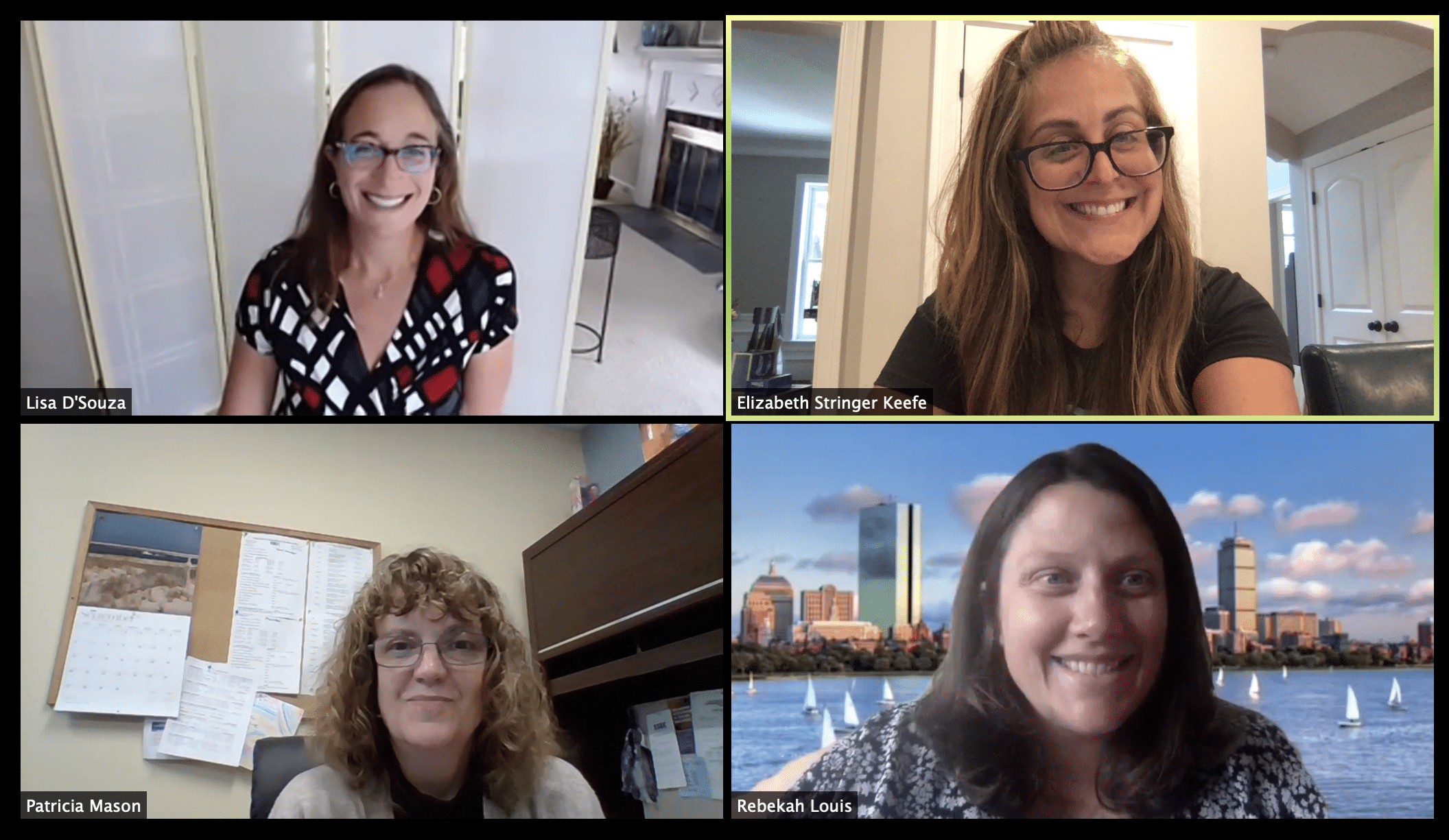
The text of this article is adapted from Project SOLVE’s free resource, Strategies for Virtual Education: Resources for Educators and Teacher Educators.
Project SOLVE (Strategies and Opportunities for Leading Virtual Learning) is a small inquiry research group comprised of Massachusetts-based teacher educators and PK-22 practitioners who came together in response to widespread school closures, the result of the coronavirus pandemic of 2020 that forced PK-22 teacher and teacher educators’ sudden use of technology into educational and instructional planning and decisions. The group was formed in response to widespread inequity, an urgent need for increased training for teachers, uneven resources, and lack of practical solutions to help us move forward as a field. Members brought varied expertise to the table: PK-22 experience and teacher preparation, as well as a combination of technology, general and special education expertise, and work in equity and social justice education. Harnessing the group’s collective experience, expertise, and resources helped to chart a path forward instead of waiting for direction, a pattern of treading water that we all found ourselves in and frustrated by.
07 Oct2020
By Karen Hammerness, Julie Contino and Maritza McDonald
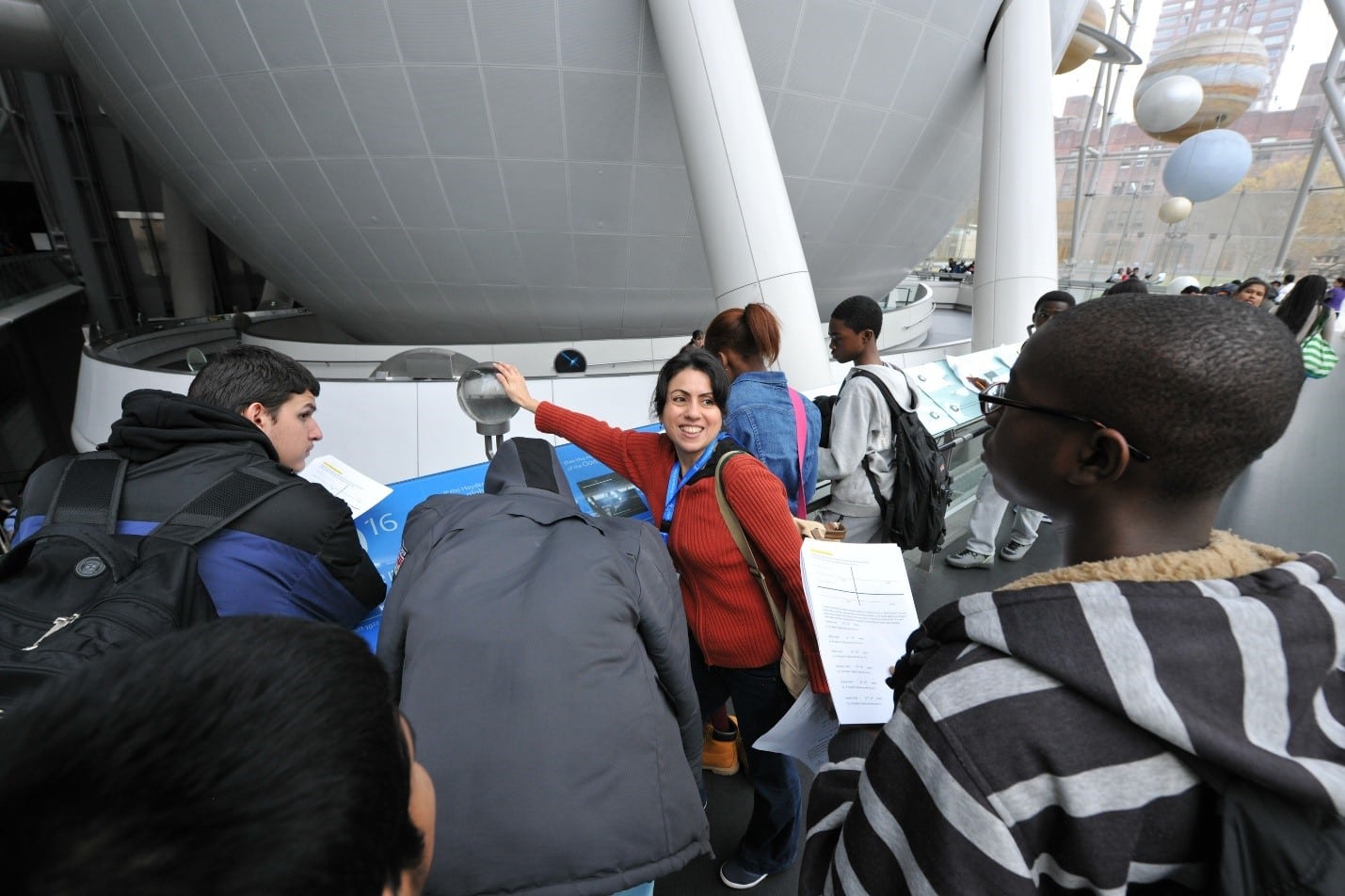
Photo Credit: Denis Finnin, AMNH
This article is part of a series on clinically rich teacher preparation in New York State, coordinated by Prepared To Teach at Bank Street College. The text is adapted from their latest report, Making Teacher Preparation Policy Work: Lessons From and For New York, and shared by the featured institution.
The American Museum of Natural History (AMNH) may be most well-known for its long history of scientific research, and for its expansive galleries featuring casts of dinosaurs, or dioramas from around the world, and the 94-foot long Blue Whale suspended in the Hall of Ocean Life. However, for just as long as the museum has been engaged in educating the public about scientific phenomena through visits, the museum has been supporting teachers and teaching. Since just after the museum opened in 1880, the museum offered lecture courses for teachers, broadening offerings by the 1920s. In the late 1930s, the museum offered a preparation program for teachers interested in using out-of-school learning experiences in their classrooms. Today, the museum offers a wide range of professional development opportunities for teachers in science, as well as works in partnership with cultural institutions around the city to support science teacher development.
05 Oct2020
By Mary Murray
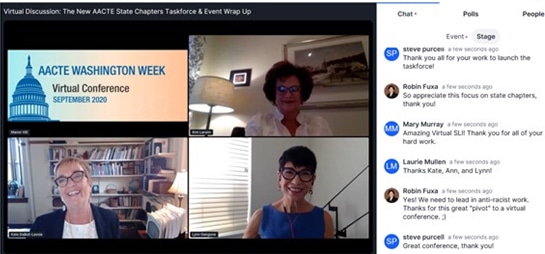
Last month, during the AACTE State Leadership Institute (SLI), I attended the session on the newly formed State Chapter Taskforce, which was moderated by AACTE President and CEO Lynn Gangone, AACTE president and CEO; Ann Larson, chair, AACTE Board of Directors; and Kate LaBoll-Lavoie, chair, Advisory Council of State Representatives (ACSR) and AACTE Board member. State Chapters, a network of AACTE member institutions that are organized collectively to advocate for and to address educator preparation issues in their state, helps provide direction to AACTE. This very important taskforce was formed to:
- Review the existing policy on the relationship between AACTE and the state chapters, the practices and experience of peer associations, and advice of legal counsel
- Consider the desired relationship between AACTE and state chapters. How do AACTE and the state chapters want to see the relationship evolve?
- Recommend revisions to state chapter policy to the AACTE Board of Directors
- Provide recommendations to the Board and National Office staff on how AACTE could best collaborate with the chapters, particularly with regard to state policy advocacy
05 Oct2020
By Claudine Keenan
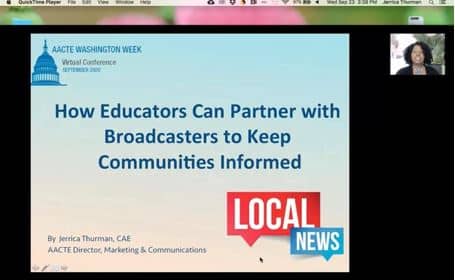
At the 2020 State Leaders Institute, AACTE’s director of marketing and communications, Jerrica Thurman, shared some excellent “how-to,” exemplars, and resources that helped attendees understand How Educators Can Partner with Broadcasters to Keep Communities Informed. From the very basic level of helping us understand how each type of media outlet is organized and what drives each of their interests in news we might have to share, all the way to the very specific steps educators can take to sharpen our skills as subject matter experts, Thurman offered a session that all attendees valued.
The basics began with an eye-opening update about where most Americans get their news, revealing that local television, radio, and daily newspapers are still in the lead. In fact, Americans increased their average of watching local news from 4 hours to 5 hours per week over the last 15 years (RTDNA/Hofstra Surveys). Over the last 10 years, Pew Research surveys have also shown that the percentage of Americans who listen to radio (terrestrial or streaming) has increased from 25% to more than 50% over the last 10 years. Thurman laid this as the groundwork for educators to see that our potential audiences are seeking out more information sources during the same time period.
05 Oct2020
By Jane E. West
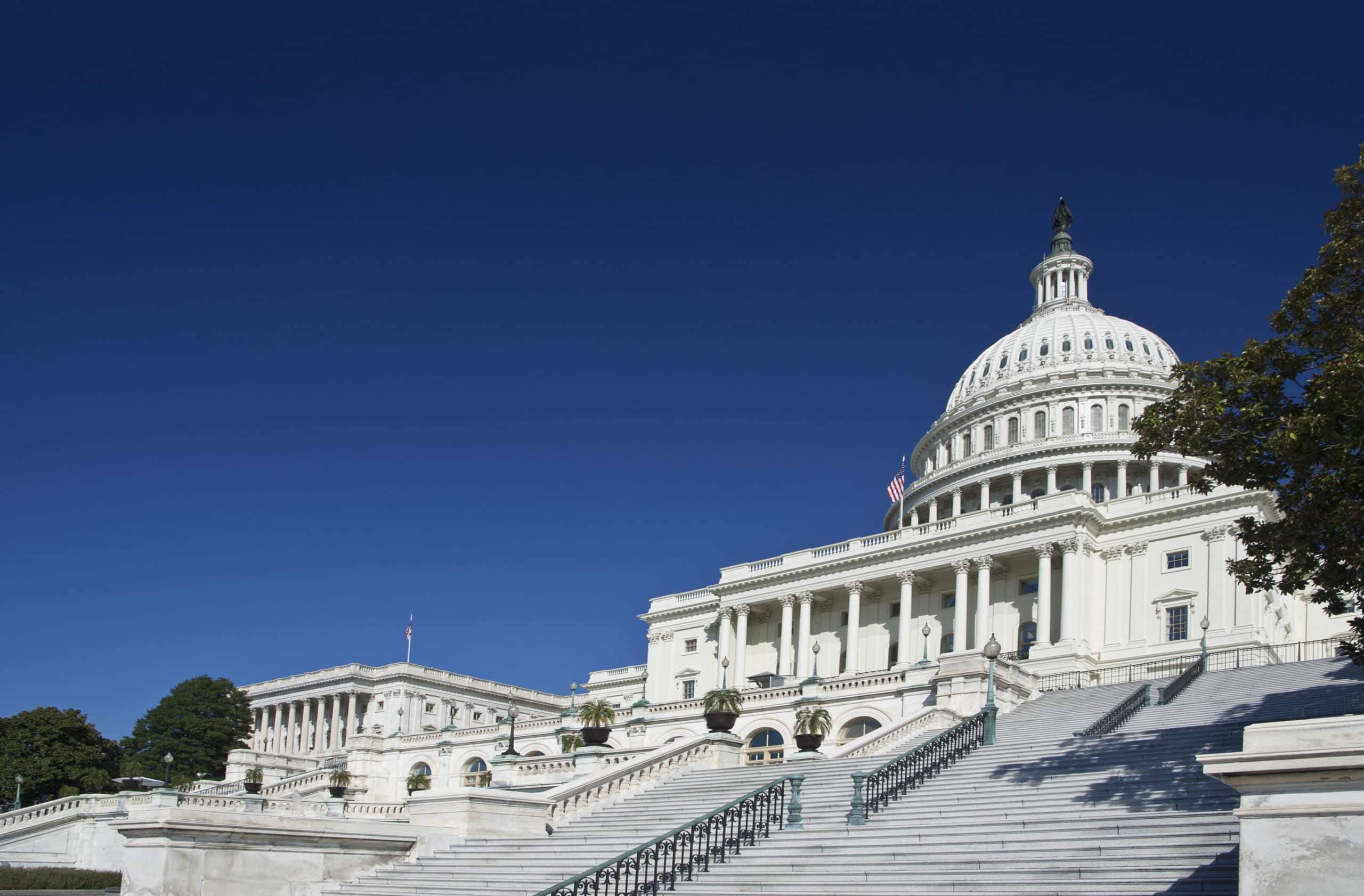 This blog post is written by AACTE consultant Jane West and is intended to provide updated information. The views expressed in this post do not necessarily reflect the views of AACTE.
This blog post is written by AACTE consultant Jane West and is intended to provide updated information. The views expressed in this post do not necessarily reflect the views of AACTE.
The Senate Passes Funding Bill to Avoid Government Shutdown/ COVID Funding Bill Remains Stalled
The federal fiscal year ended on Wednesday, September 30 at midnight. That day, the Senate passed a bill (with a 84-10 bipartisan vote) to keep the government funded at last year’s level temporarily—a stopgap measure called a Continuing Resolution. The House passed the same bill last week with a bipartisan vote. The President signed the bill a few hours after the deadline—early Thursday morning—so that functioning and funding of the federal government continues uninterrupted. The bill expires December 11, after the election, leaving a lame duck session of Congress to deal with it.
In the House, Speaker Pelosi (D-CA) was absorbed in trying to come up with a last-minute deal with the White House to secure a long-awaited next COVID relief package. She met repeatedly with Treasury Secretary Steve Mnuchin, who appears to be the White House’s lead on this, but did not achieve a final deal. So, she turned to her Democratic colleagues in the House and passed a trimmed-down version of the HEROES Act—their COVID relief bill that passed several months ago, but made no headway in the Senate.
05 Oct2020
By Weade James
AACTE continues to expand the Holmes Program to provide relevant mentorship, support, and professional development to graduate students of color pursuing a degree in education. Holmes scholars represent the next generation of diverse faculty and leaders who will advance the field and address the equity and opportunity gaps in our nation’s educational system. We are thrilled to welcome five new scholars from Texas Christian University (TCU) and Austin Peay State University: Leslie Ekpe, Cara Jones, DeAndrew Rainey, Ebony Love, and Ariela Martinez.
05 Oct2020
By Jerrica Thurman
AACTE officially announced today that its 2021 Annual Meeting will be offered virtually. Themed “Resisting Hate, Restoring Hope: Engaging in Courageous Action,” the conference will now be held
February 24-26, 2021.
Educators have the opportunity to take action against inequities during these challenging times. By participating in the AACTE 2021 Annual Meeting, you can join a united effort to disrupt inequities while educating for inclusion and change. AACTE offers keynotes featuring dynamic speakers, deeper dives into complex education issues, and learning labs for equipping attendees with practical skills for advancing programs and institutions.
This year’s conference is organized into four strands:
02 Oct2020
By Tanner Brown
The following article features a podcast interview with AACTE’s Jacqueline Rodriguez addressing higher education’s strategies to ensure teacher and educator candidates access and benefit from the digital learning environment.
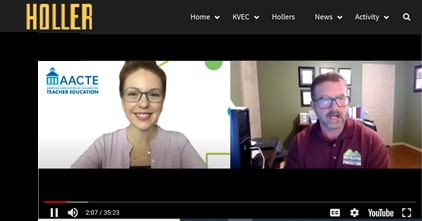
The Digitalachia Podcast hosted by Robert Brown of the Kentucky Valley Educational Cooperative (KVEC) welcomed Jacqueline Rodriquez, vice president of research, policy, and advocacy with the American Association of Colleges of Teacher Education (AACTE). The topic of discussion is higher education and incorporating virtual and blended learning models in the digital world.
02 Oct2020
By Nicole Dunn
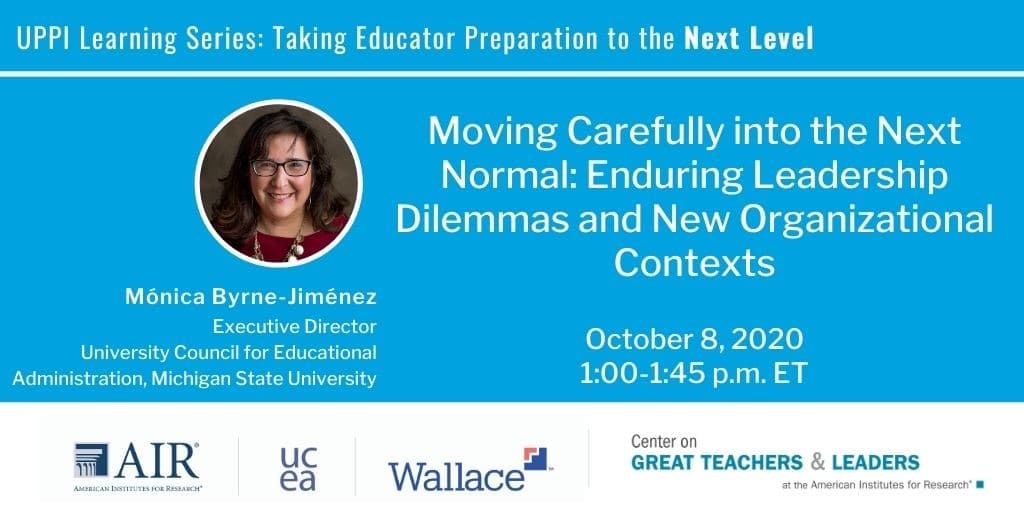
AACTE invites you to join the fifth and final session of The Wallace Foundation’s University Principal Preparation Initiative (UPPI) learning series. This session, Moving Carefully into the Next Normal: Enduring Leadership Dilemmas and New Organizational Contexts, will explore the question, “how can the teaching and learning faculty and education leadership faculty work together to prepare the next generation of school leaders?” Deans, department chairs, faculty, and district staff will receive a protocol designed to explore the assets of each department and how they can be combined to better prepare leaders.
02 Oct2020
By Jacqueline E. King, Ph.D.

To better understand and meet the needs of its members, AACTE is launching a survey on how educator preparation programs are impacted by and reacting to the twin crises of the pandemic and racial violence and inequity in the United States. This survey follows up on a similar effort last spring to capture how the pandemic was impacting members’ ability to prepare future educators.
The chief representative for each AACTE member college and university will be invited to complete the survey. The survey will be open October 7 through November 6. Results will be released in November. Deans, directors, and chairs are asked to be on the lookout for this invitation and to complete the survey at their earliest convenience. AACTE will use member responses to
- Determine the support members need
- Inform the public and policy makers about how the coronavirus and racial inequity crises are affecting educator preparation and how members are leading during these crises
- Share aggregated information to help you benchmark your experience against your peers.
For more information and resources on COVID-19 and educator preparation, please visit AACTE’s COVID-19 Resource Page.
02 Oct2020
By Brigid Brennan and Hannah Dennis
This article is part of a series on clinically rich teacher preparation in New York State, coordinated by Prepared To Teach at Bank Street College. The text is adapted from their latest report, Making Teacher Preparation Policy Work: Lessons From and For New York, and shared by the featured institution.
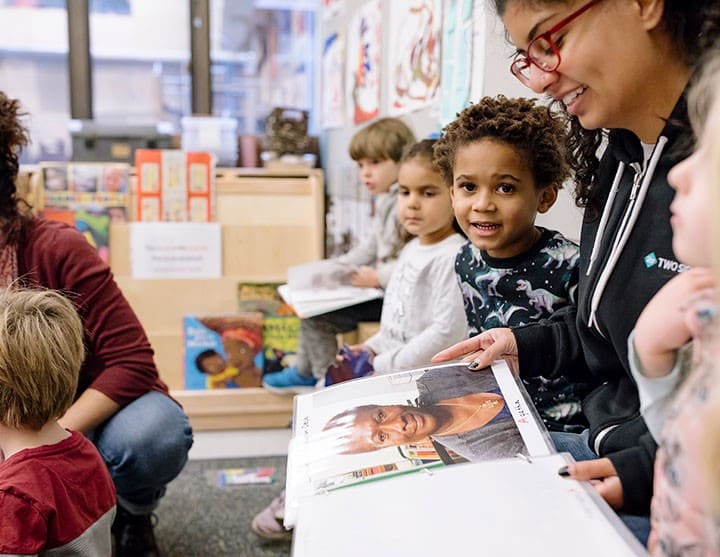 Bank Street Graduate School of Education is a small, progressive institution in New York City, founded in 1916. Bank Street has a long history of pioneering innovative, inclusive education programs, dating back to the founding of Head Start.
Bank Street Graduate School of Education is a small, progressive institution in New York City, founded in 1916. Bank Street has a long history of pioneering innovative, inclusive education programs, dating back to the founding of Head Start.
One of Bank Street’s newest programs—the Early Childhood Urban Education Initiative—helps uncredentialed early childhood educators in under-resourced New York City neighborhoods complete their certification and earn master’s degrees while remaining employed in their existing early childhood classrooms.
The educators who enroll in the program often come from the communities in which they teach and, as they progress through the rigorous program, they are able to bring their knowledge and skills to bear on the students in their classrooms, the organizations in which they are housed, and the community overall. By completing a master’s degree and obtaining their certification, participants in this initiative gain access to a wider set of professional opportunities.
02 Oct2020
Board Maintains Commitment to Review, Improve Teacher Prep Standards on a Seven-Year Cycle
By Matt Vanover
 The Council for the Accreditation of Educator Preparation (CAEP) is seeking input on proposed changes to the 2013 CAEP Standards for educator preparation. The CAEP Standards guide the nation’s top schools of education, those that are CAEP accredited, in preparing future K-12 teachers. CAEP is the only accreditor of educator preparation providers recognized by the Council for Higher Education Accreditation.
The Council for the Accreditation of Educator Preparation (CAEP) is seeking input on proposed changes to the 2013 CAEP Standards for educator preparation. The CAEP Standards guide the nation’s top schools of education, those that are CAEP accredited, in preparing future K-12 teachers. CAEP is the only accreditor of educator preparation providers recognized by the Council for Higher Education Accreditation.
“Our education preparation providers are committed to continuous improvement, and so are we. The 2013 CAEP Standards were developed to unify the profession under a single set of standards, with a commitment to ensure they remain rigorous. CAEP set the bar for programs that prepare future educators: They need to demonstrate their graduates are ready to teach on the first day they enter a classroom,” said CAEP President Christopher A. Koch. “Maintaining high quality standards, based on relevant research is costly and time-consuming. More than 30 states partner with us because we are able to tap volunteer experts in the field who committed to excellence and give their time and talents to ensure our standards are rigorous, relevant, and a model for successful teaching of our nation’s children and youth.”
02 Oct2020
By Jerrica Thurman

Are you having difficulties making decisions during a crisis? You are not alone. Academic leaders are in unchartered territory without models, blueprints, manuals, and maps to navigate the challenges facing educator preparation programs in the wake of the COVID-19 pandemic. Come discover how to make informed decisions in these challenging times during AACTE’s virtual 2020 Leadership Academy Series.
During the second session of the Academy series on October 27, attendees will engage in interactive, group discussions and learn effective decision-making strategies. You will hear from peer experts and colleagues about how to make critical decisions for advancing students and programs, dealing with difficult circumstances, staying connected, and building a team community in a virtual environment. Participants will address:
- How do you focus on the most critical decisions?
- What decisions are most urgent and important?
- Who should be involved?
- What values, voices, and vision should guide your decision-making?
This year’s Leadership Academy Series, themed “Leading During Difficult Times,” will occur in three sessions on October 14, October 27, and November 10. Join AACTE this fall at our reimagined virtual Academy to invest in your professional growth.
Seats are limited, and will be available on a first-come, first-served basis, so register now! Visit www.aacte.org for event details. Follow us on Twitter and Facebook, and join the conversation using #AACTELA20.
01 Oct2020
By Matthew Wales

After much deliberation, AACTE has decided it is in the best interest of its members, sponsors, education colleagues, and strategic partners to not hold an in-person Annual Meeting in Seattle, Washington in February 2021 due to the COVID-19 pandemic. Instead, AACTE will host its 2021 Annual Meeting, now taking place February 24-26, as a virtual conference. The goal, however, will remain the same: to provide interactive and meaningful experiences that will equip attendees to advance educator preparation during these challenging times.
As an association, we understand the value of face-to-face meetings. We appreciate the formal and informal opportunities to share and discuss best practices and latest research in-person, connecting with like-minded peers, and recognizing and honoring colleagues for their stellar accomplishments. We are confident that our virtual experience will continue to provide these unique experiences in an innovative way while ensuring your safety.






 This blog post is written by AACTE consultant Jane West and is intended to provide updated information. The views expressed in this post do not necessarily reflect the views of AACTE.
This blog post is written by AACTE consultant Jane West and is intended to provide updated information. The views expressed in this post do not necessarily reflect the views of AACTE.



 Bank Street Graduate School of Education is a small, progressive institution in New York City, founded in 1916. Bank Street has a long history of pioneering innovative, inclusive education programs, dating back to the founding of Head Start.
Bank Street Graduate School of Education is a small, progressive institution in New York City, founded in 1916. Bank Street has a long history of pioneering innovative, inclusive education programs, dating back to the founding of Head Start. The Council for the Accreditation of Educator Preparation (CAEP) is seeking input on proposed changes to the 2013 CAEP Standards for educator preparation. The CAEP Standards guide the nation’s top schools of education, those that are CAEP accredited, in preparing future K-12 teachers. CAEP is the only accreditor of educator preparation providers recognized by the Council for Higher Education Accreditation.
The Council for the Accreditation of Educator Preparation (CAEP) is seeking input on proposed changes to the 2013 CAEP Standards for educator preparation. The CAEP Standards guide the nation’s top schools of education, those that are CAEP accredited, in preparing future K-12 teachers. CAEP is the only accreditor of educator preparation providers recognized by the Council for Higher Education Accreditation.
